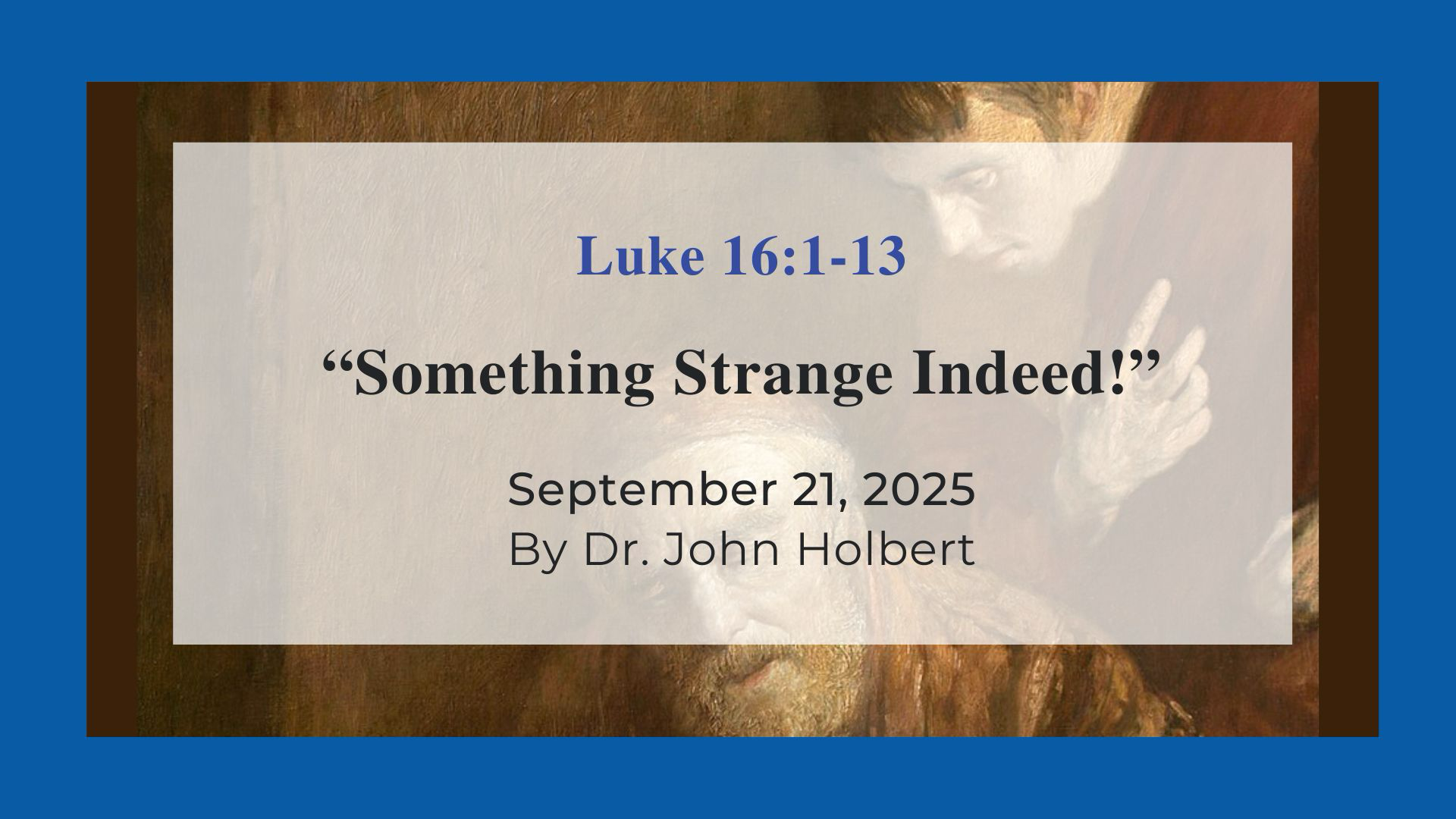Something Strange indeed! - Reflections on Luke 16:1-13, Pentecost 15, Year C
by John C. Holbert on Friday, June 13, 2025

There surely can be no stranger passage than Luke 16. It obviously has something to do with possessions, that central Lucan theme, and it uses a verb that we just saw in the famous tale of the Prodigal; this “household manager” of a rich man, like the Prodigal in the “far country,” “squanders” money, but here the squandering includes both the master’s money and his own. But unlike the Prodigal, the squandering leads to unemployment at the hands of the master, rather than an unquestioning acceptance by the merciful father of Luke 15. There is no doubt that what the household manager has done is both immoral and ill-advised, and the master is having none of it. “Give an account of your work, because you cannot continue as manager” (Luke 16:2).
The manager, now out of a job that was both lucrative and admirable, has a huge problem. “I am not strong enough to dig, and I am ashamed to beg” (Luke 16:3). Life as household manager of a large estate has clearly made his hands too soft for hard work, and the esteem of the community has made him especially attuned to social status—digging or begging will hardly do! But he is a clever man, and he begins to scheme about how, after his firing, he can still find ready welcome into the homes of many citizens of the village. He well knew how many of those citizens owed money to his former master. So, he asked them, one at a time, to come to his own house so that he may put his plan into motion.
“How much do you owe the master?” he asks the first one. “100 jars of oil,” he replies, so the clever man tells him to “take your bill, sit down quickly, and write 50” (Luke 16:6). He then says to a second debtor, “How much do you owe?” “100 bushels of grain,” he says, and is told, “Take your bill and write 80” (Luke 16:7). Now comes the surprise. “The master praised the wicked household manager because he acted cleverly” (Luke 16:8). What are we to make of that response!?
We should note three things about the reply. The word kyrios is used for the master, a word regularly, of course, often applied to Jesus as “Lord”. Here, however, it must refer to the master of the parable. But we also see that the household manager is directly called “wicked,” and what else should be said about him? He has first defrauded his master, and after being fired for it, then adds to the fraud by blatantly changing the bills of the master’s debtors, so as to bilk the master even more! But we also should note that the master commends his former assistant not for his fraud, but for his “cleverness.” This Greek word is close to the word for “prudence” (phronesis), an important word in the thought of Greek wisdom. Thus, here a “clever” manager is termed at the same time a “prudent one,” and thus may be said to respond to a crisis in his life with appropriate actions that could save his life. Of course, his fraud is hardly to be applauded, but that is not the thrust of the parable; he is praised for his prudence.
And Luke goes on to make the connections he has interest in when he says, “Indeed the children of this age are more clever towards their own generation than are the children of light” (Luke 16:8). That sentence may be paraphrased as: the children of this age are more clever, more prudent (using an adjective from the same Greek word) in relationship to their own crises than are the children of light (that is, the current members of the community) when they face their crisis, namely the coming of God’s prophet and the demand for repentance, which is Luke’s central concern in his Gospel. Luke 16:9 concludes the direct concern for the use and misuse of money. When one “makes friends for yourselves from the mammon of wickedness,” refers to the giving of alms which for Luke always indicates the hope of a heavenly reward (see the “treasures in heaven” in Luke 12:33-34).
Luke 16:10-12 has engendered much comment but little agreement concerning meaning. Obviously, the concern of money and its use and misuse is central, as usual for Luke. Each of the three sayings present a contrast between something lesser and greater. It could be said (see Luke Timothy Johnson, 1991, 248) that in each case the lesser reality refers to possessions, the greater to “disposition of the self before God.” Luke hammers home the idea that the right use of money will ensure a secure place with God, while the service of mammon, the holding fast to it, will ensure separation from God. However difficult the unity of Luke 16:1-13 may be discerned, the Lukan themes sound forth as they regularly do.
